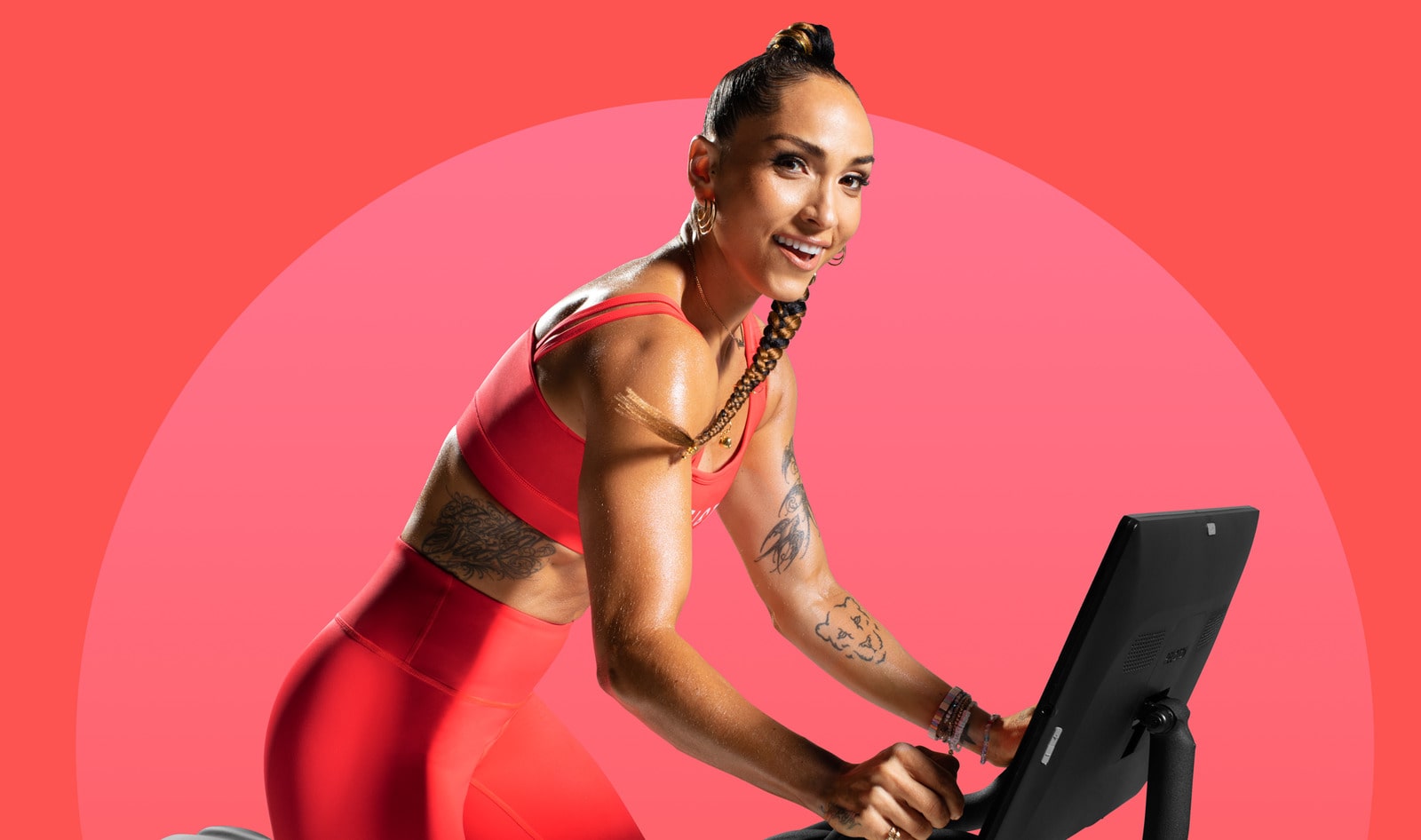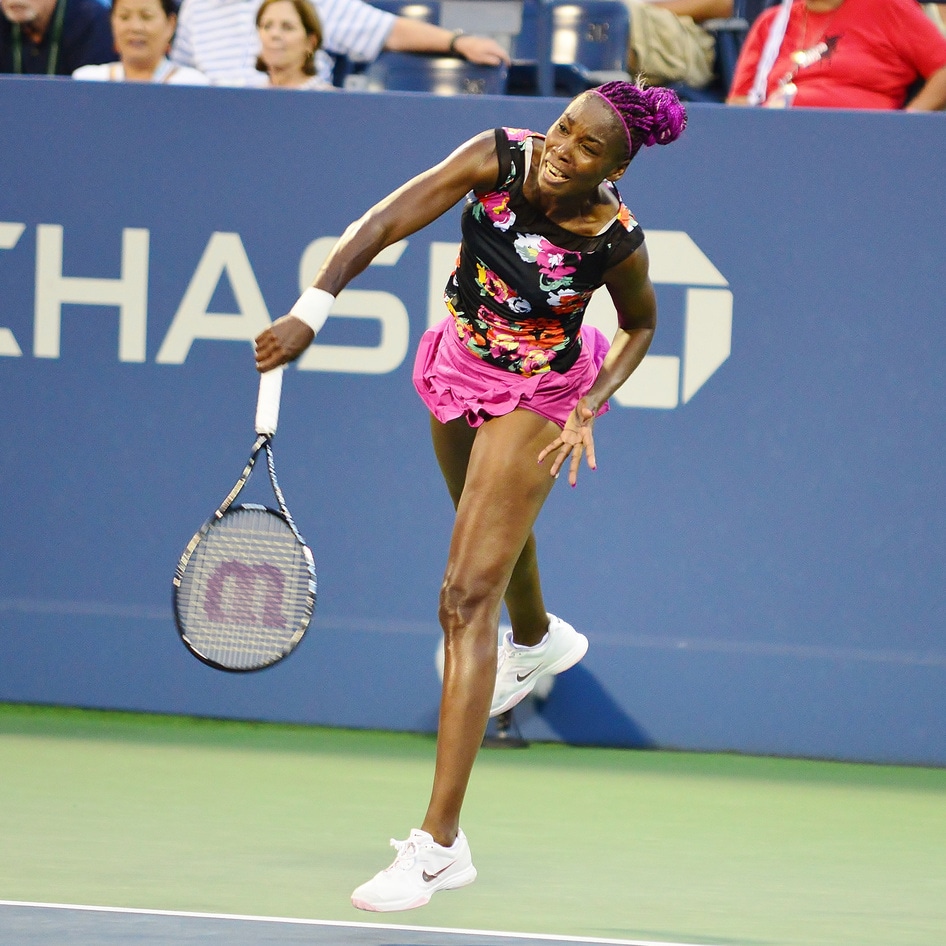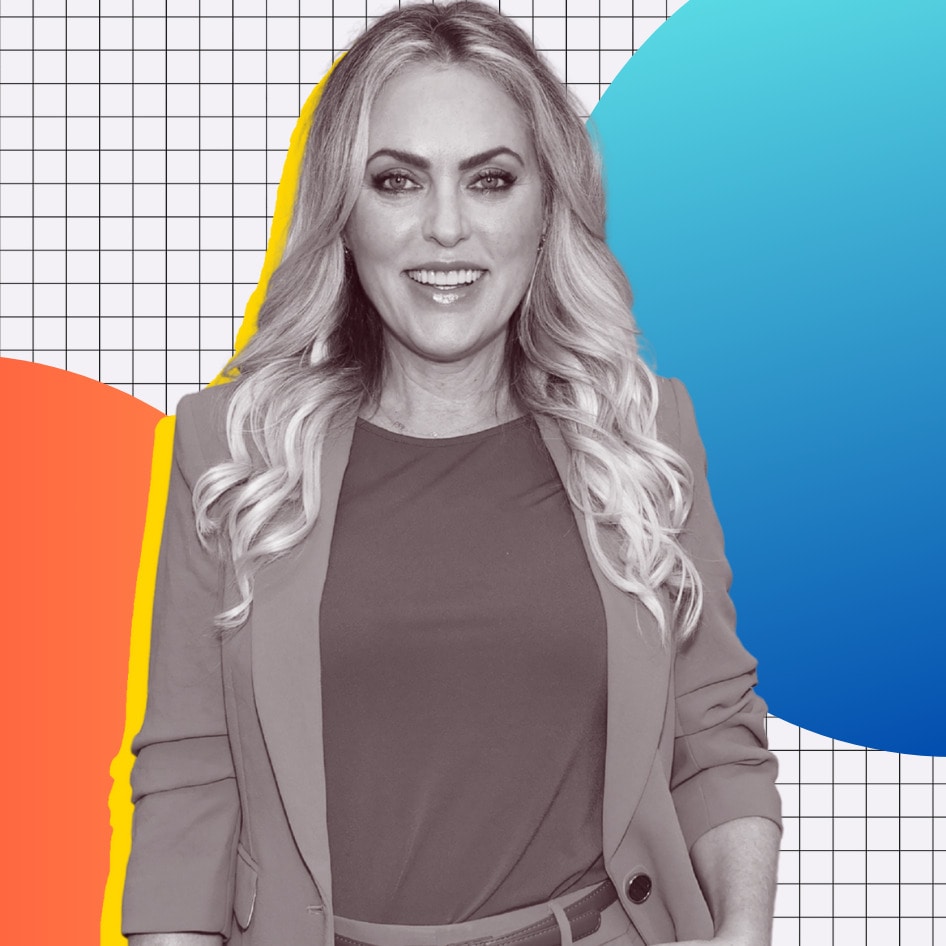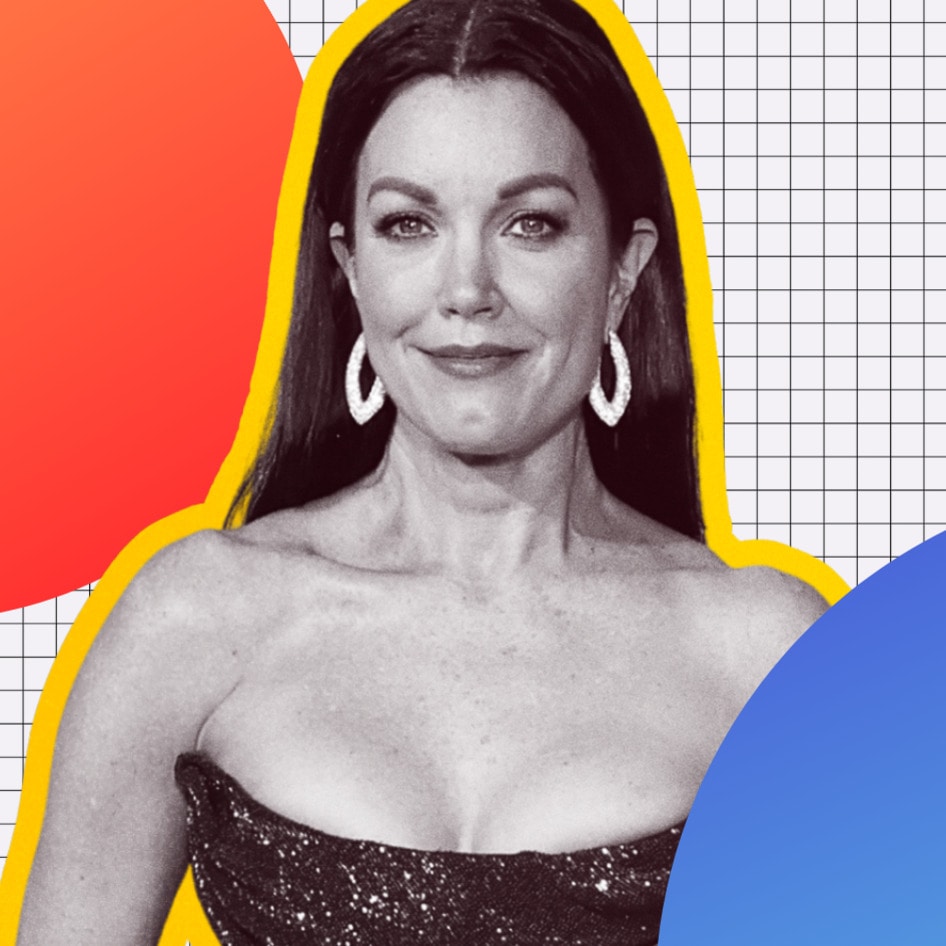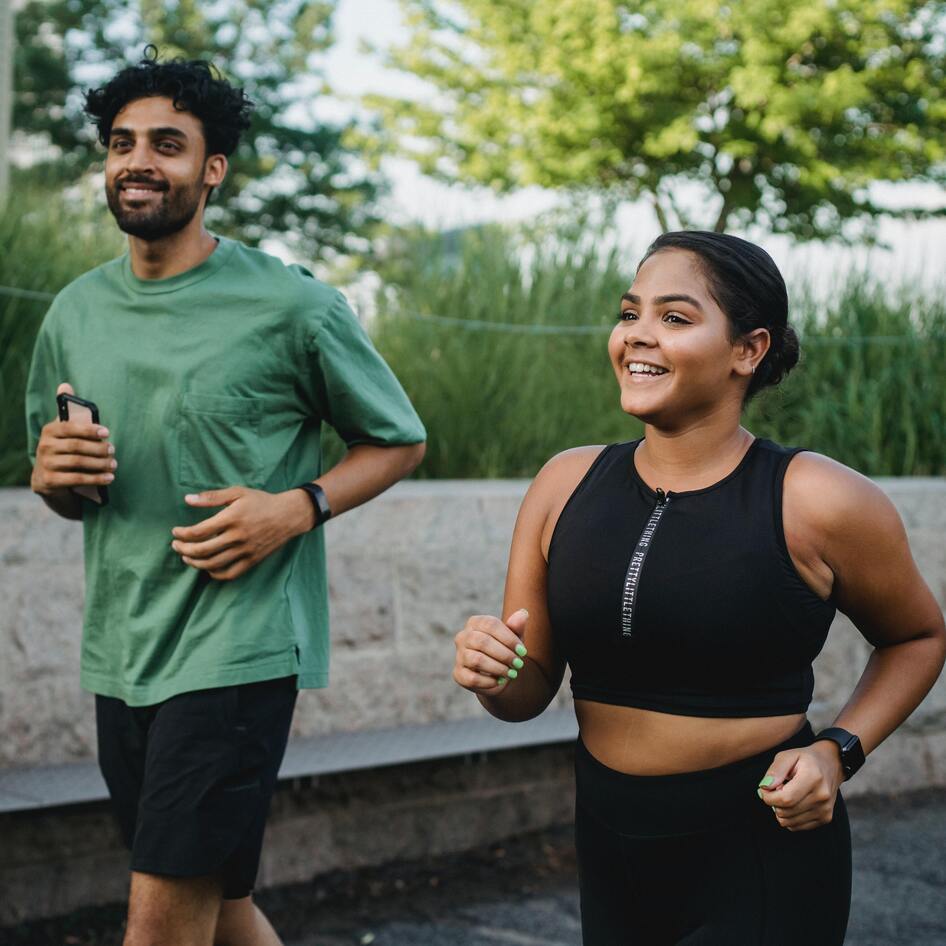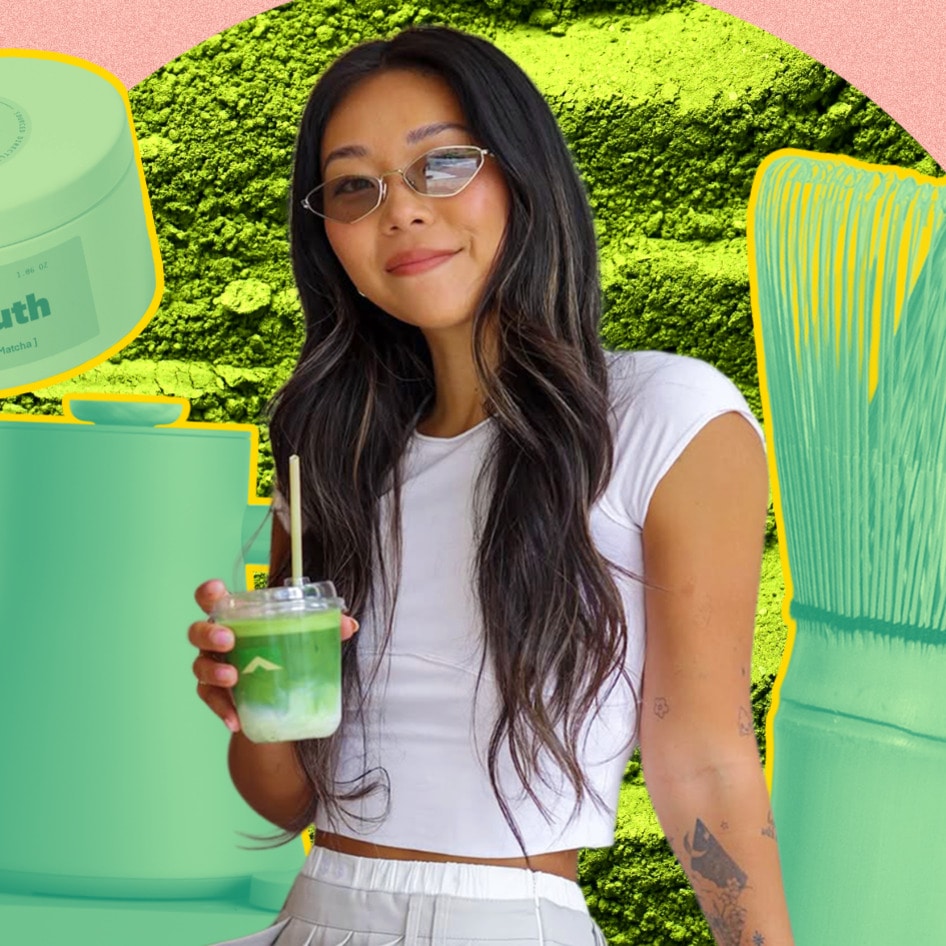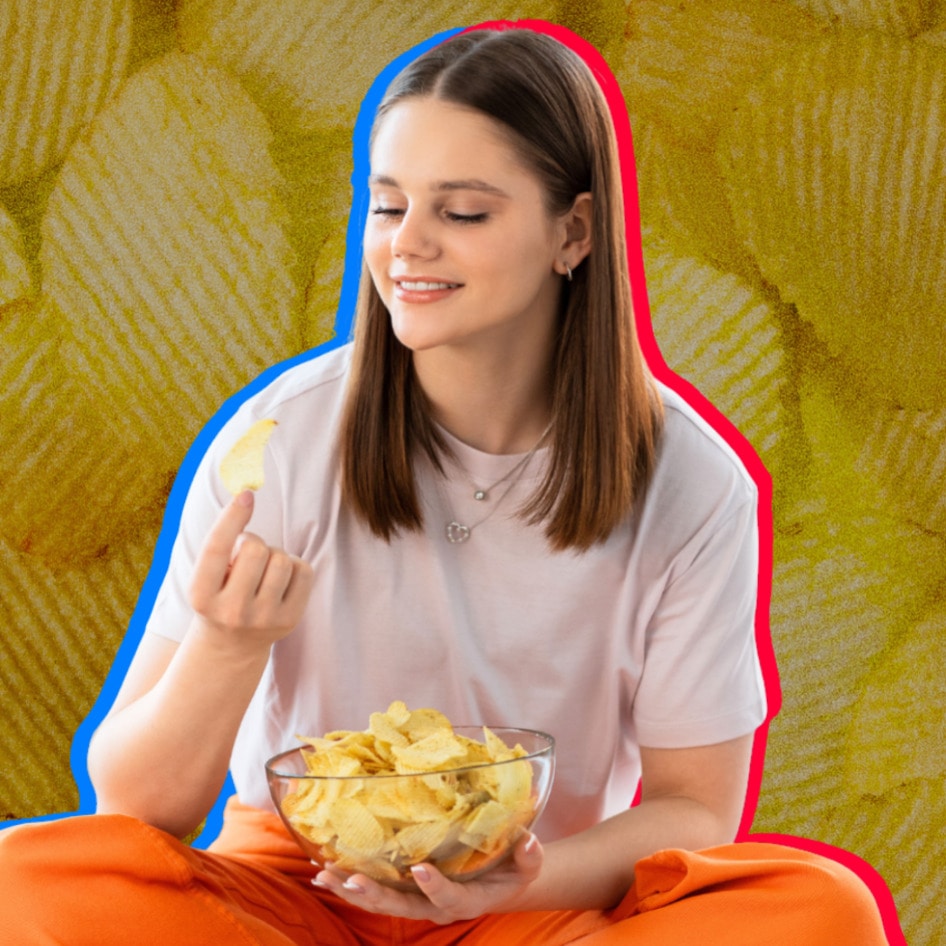“Put that crown on. You just polished it with sweat,” Robin Arzón says as she slows down her Peloton bike in front of her live, in-studio class and the millions of members tuning in at home. Arzón’s flourishing fitness career has catapulted her to the cover of Women’s Health, the New York Times Best Sellers list, and the vice president of fitness programming position at Peloton—but this wasn’t the path she grew up aiming for. In fact, there was a time when this ultramarathoner and certified personal trainer never would have considered herself an athlete.
But after a traumatic, near-death incident in 2002 where she was held at gunpoint, Arzón discovered movement as a way to heal and turned pain into strength as she discovered a newfound passion for fitness. Since leaving her high-powered job as a corporate litigator in 2012, Arzón has reinvented herself, becoming a global fitness leader and embarking on various endeavors including her upcoming second children’s book Strong Baby (following her The New York Times bestseller Strong Mama) that explores the importance of movement, preaches progress over perfection, and encourages parents and baby to move together.
And for the past decade of Arzón’s training, including several ultramarathons, she has fueled herself entirely on plants. VegNews’ Sarah McLaughlin sat down with Arzón to discuss why she says balance is “bullshit” and how she uses plants to power her high-octane lifestyle.
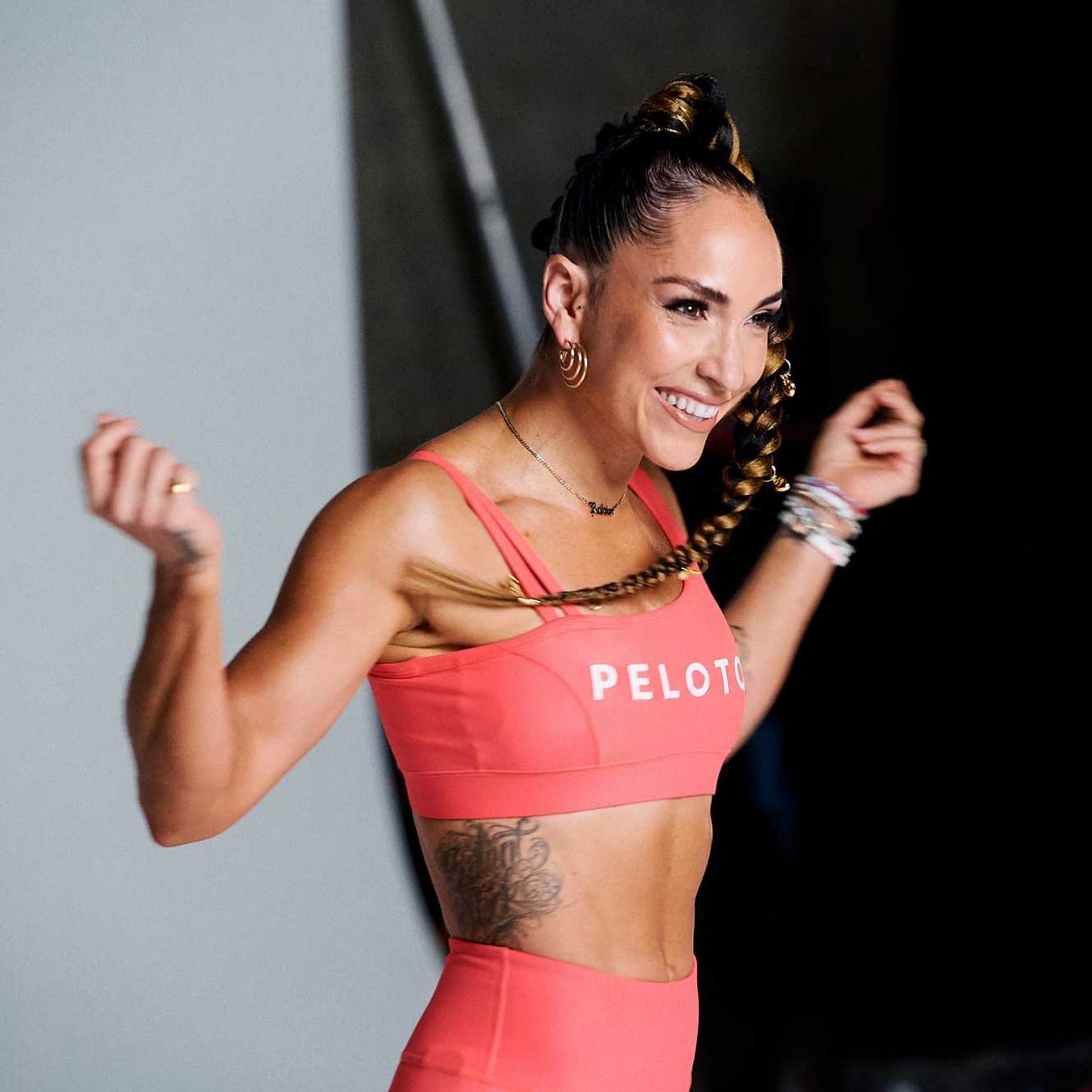
VegNews: You’re a Peloton instructor, marathon runner, and powerlifter. What brought you to your fitness journey and inspired you to leave your law career?
Robin Arzón: It started with running. I started running when I was in law school and would just very casually jog or walk to campus. That turned into a 10k and then a half marathon, and then my first marathon was the New York City Marathon. And then, eventually, I just completely fell in love with movement and decided I had to figure out a way to monetize that journey or transition.
VN: And in the midst of all that, how did you turn to a plant-based diet?
RA: When I started doing ultra-marathons, I read the books of Rich Roll and Scott Jurek, both of which had just recently come out. I did my first marathon in 2010, and by 2012, I was pretty much exclusively plant-based. That’s also around the time I started doing 50-mile races and was really researching anti-inflammatory diets and how I could recover faster and feel better. That was really my entry point into being plant-based. I thought, “Oh wow, if it’s working for these incredible endurance athletes, let me try it.” And I haven’t looked back. I have more energy. I recover from workouts, marathons, and really intense endurance events very quickly—in addition to sleeping better and having more energy.
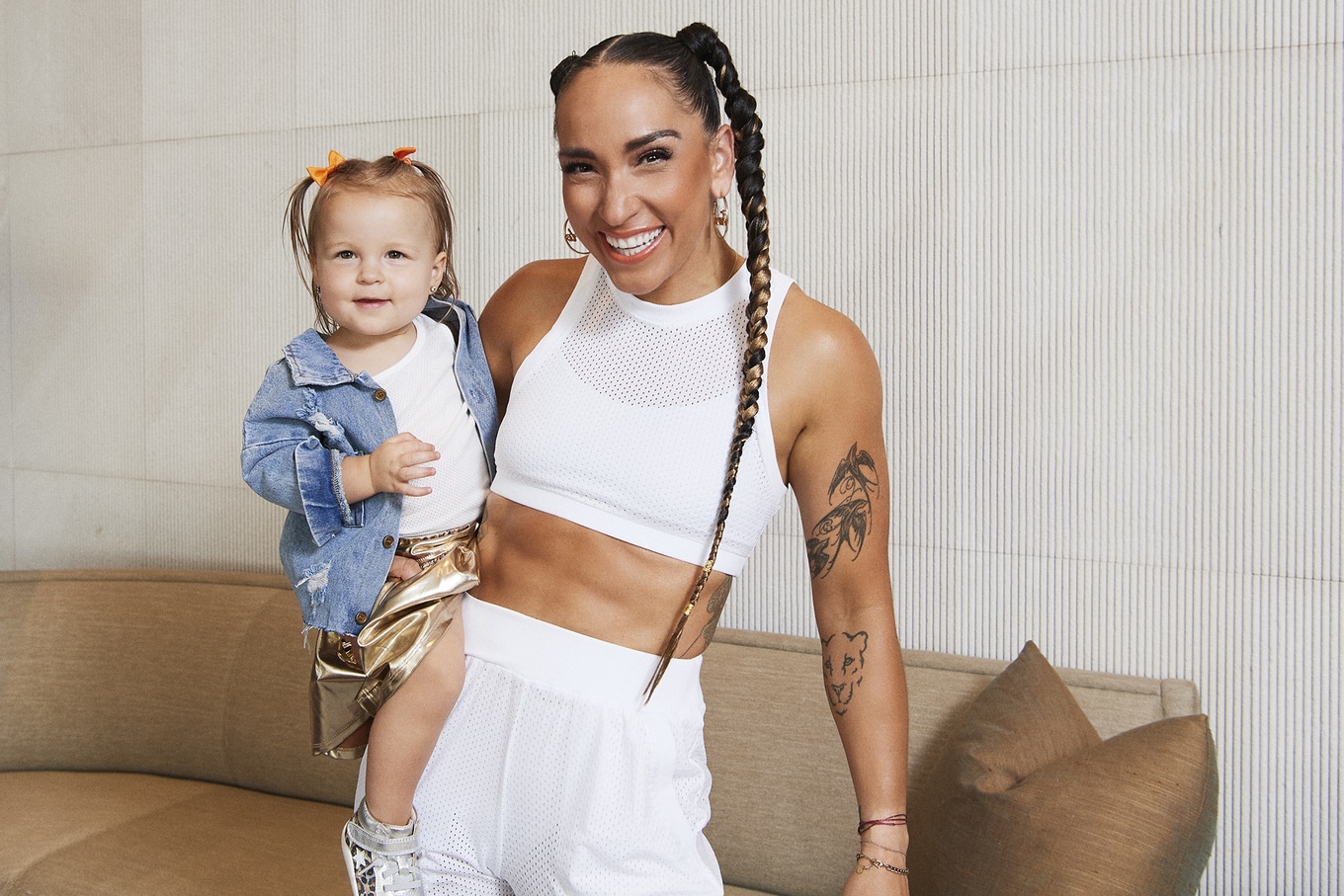 Peloton
Peloton
VN: As a vegan mom, how do you incorporate your plant-based lifestyle into your family’s meals?
RA: Now that I’m a mom to my daughter Athena, she will literally sit at the counter with me and gobble everything up. Her fruit, her vegetables—she’s not a picky eater, and I’m very grateful for that. In fact, when I was pregnant with her, I had intense cravings for ginger, and that was one of the first foods she gravitated to. But my husband cooks in the kitchen, I cook in the kitchen—it’s very much a family affair. We even get music going and make it very celebratory.
VN: What’s one thing that you would like people to know about living a plant-based lifestyle, especially those coming from the world of fitness who might be skeptical?
RA: I’m always delighted to smash the protein myth and really enlighten folks that we are more likely to be fiber deficient than protein deficient. I train really intensely. I’ve done hours of training six or seven days a week for the past decade, and it’s been on plants. I’ve put on muscle and have a lean aesthetic and am very strong—and I’m proud of that. It takes some pivoting in the beginning and replacing things that we’re used to. Once you’ve replaced those seven to 10 things that you would normally put in your grocery cart, the meals really start to develop, and you start to get excited around creative ideas. There’s a burgeoning [world] of vegan bodybuilders and vegan endurance athletes, and while different sports might require different things to address that sport’s specific needs, everyday athletes—certainly the weekend warriors or the person who just wants to live and add years to their life—can do it. There’s a very achievable way to marry a plant-based diet with athletic pursuits. It’s the idea of leading by example and just showing that it can be done.
VN: As a first-time mom, you’ve talked about body image issues and shifting the way you think about your body on your social media—things that so many have struggled with. As a fitness instructor, how does that play into the way that you think about and approach wellness?
RA: That journey was really challenging for me. I mean, as somebody who’s given birth, you’re repairing your body. And there is a lot of pressure, especially with social media and the way it operates as a kind of highlight reel. So I actually got off social media for a while while I was on my maternity leave. I created that boundary for myself, so I could really focus on my body on my timeline. And fitness is my job, so I had this date on my calendar looming where I was loosely expected to be back on the production schedule, filming live classes for millions of people at Peloton. So that was in the back of my mind. My mantra was consistency over intensity and controlling what I could. There were many days that I was just bone tired, and the only thing I could control was going for a 10-minute walk and eating well. I really tried to focus on foods that would nourish me. And learning to create boundaries, exercise the power of no in order to protect our yesses, and really start to invite healthy doses of grit and grace in the conversations that we’re having with ourselves.
 Peloton
Peloton
VN: What would you say to someone trying to strike that balance between having a healthy relationship with their body and pursuing their fitness goals?
RA: It’s important to focus on what your body is able to do and less on its size. I go as far as to write literal love letters to body parts that I’m not feeling. This past summer, I was like, “Dear thighs, I love how strong you are. And you lift really heavy weights in deadlifts and spots.” Sometimes it’s playful. Sometimes it’s poignant. Sometimes it’s very real and vulnerable. [There were points] where it was like, oh my gosh, I’m totally back to basics. I’m learning how to do a push-up again, learning how to run a mile. But that time was actually really healthy for me because I let go of the metrics. I would literally cover up the metrics on the treadmill and focus on “what can my body do?” And that presence was liberating—letting go of these prior notions of what success looked like in a given workout or in a given cycle of training.
VN: How do you strike that balance for yourself between all of the different things that you’ve got going on?
RA: So this is the real talk. I think balance is bullshit. I think balance is a harmful concept that mostly erodes the sanity of women and primary caregivers in a household. Because it implies that you’re showing up in every environment, giving 100 percent, and every single piece of that pie is getting the same percentage—and that’s unrealistic. There are some moments where I’m 90 percent executive and 10 percent mom. I am very grateful that I’m delegating either to my husband or my nanny or my mom. I’m asking for what I need and really using the community around me. Then there are other times where I’m 100 percent mom, and I don’t pick up my phone and work can wait. When we feel splintered and fractured, it’s really harmful to think I should have been [more balanced]. So instead I really own my “no” to protect my “yes.” I have no time to indulge mediocrity or casual yesses. It’s either a “hell yes” or it’s a “no, thank you.” And that helps me protect the areas of my life that I find sacred and that I really want to be ambitious toward.
So instead I really own my “no” to protect my “yes.” I have no time to indulge mediocrity or casual yesses. It’s either a “hell yes” or it’s a “no, thank you.” And that helps me protect the areas of my life that I find sacred and that I really want to be ambitious toward.
VN: You’ve pushed back on the criticism of hustle culture, which could be seen as controversial. Can you share your perspective on that?
RA: One of my favorite topics! I love the word hustle. It gets wrapped up in the conversation around burnout, which is a very constructive conversation that we all should continue to be having. But I define hustle as a gritty work ethic toward your self-defined goal of success. That is admirable. Confidence is a side effect of hustle. Our ability to name it, claim it, understand that we are able to step into our power, know our worth, and add tax. Our spines are straighter, and we’re showing up in the world. I truly believe all of these things have an element of hustle in them. It doesn’t mean that it’s gratuitous, and it certainly doesn’t mean it’s by somebody else’s timeline or definition.
VN: What kind of connection do you see between your fitness journey and your mental health?
RA: Oh, my gosh. I mean, I’ve lived it. Running really helped me process trauma. I was held at gunpoint when I was in my early 20s, and running truly healed me. So when I say movement is medicine, I mean it. It’s not the only approach to [healing], but it’s a big one. I often take my daughter to the playground and see the kids on the monkey bars. And I think, wow, they’re trusting themselves to use this movement as a way of being in their bodies, being in their power. It’s very innate for children. Adults sometimes have to find their way back to that. And where it links to mental health? Truly in everything. It’s when we can be in our physical bodies and speak to ourselves in a kinder way, we’ve moved the needle.
VN: And what is in your mental health toolkit?
RA: Again, for me, an anchor to my mental health has been movement, and since I started my running journey, I’ve added a whole array of movements to that. Sometimes it’s lifting a heavy barbell over my head, sometimes journaling. Something that’s not often talked about is actually the mental gymnastics of dealing with a bad workout, dealing with a tough race or run. In the same way that you might unpack with a friend, doing that with a journal and unpacking tough training runs and training sessions, as well as life stuff, relationship stuff, work stuff … I fold that into my journaling. I always feel better after a workout—I’ve never regretted one. I remind folks that when you’re in your toughest, most cortisol-filled state, going back to basics of sleep hygiene, water, eating a vegetable … these are all things that keep us alive for a reason. I want folks to focus on where they feel most vibrant because we deserve more than just fine.
 Peloton
Peloton
VN: We live in very chaotic times right now. What gives you hope when you wake up in the morning?
RA: My daughter gives me hope. She is just so joyful. We put music on in the morning and dance to Bad Bunny. Just her ability to have presence and be in the moment has been a lesson I’ve learned since being a mother. We have such a beautiful capacity for change. I love that we are now having conversations in community, around our ability to turn pain into power and that healing yourself can be a radical act. That there are different approaches to how we can heal. And part of that is how we fuel our bodies. I think it’s amazing that we can plant seeds, tend to those seeds, and tend to the new bridges that are being built every day in connection and community. It’s inspiring to see that.
For the latest vegan news, read:
JUMP TO ... Latest News | Recipes | Guides | Health | Subscribe

